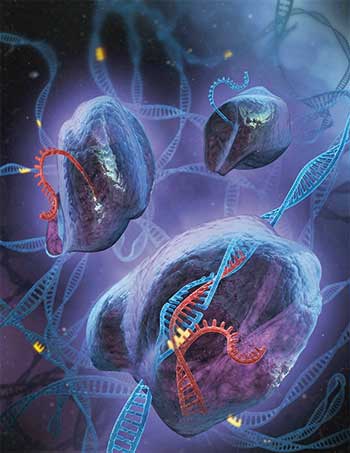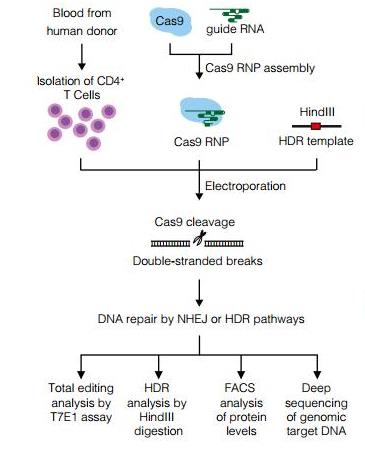CRISPR/Cas9 Successfully Modifies T Cells

Scientists from University of California San Francisco (USCF) have found an improved method to successfully edit the genome of mature human T cells. The research team introduced the editing tools Cas9 and guide RNAs, preassembled as a ribonucleoprotein, by electroporation. The work, published in PNAS, can have future therapeutic applications in patients with immune disorders.
T cells or lymphocites are a type of white blood cells that have a role in cell-mediated immune response. T cell genome modification has long been sought after: cell based therapies could be directed against HIV, cancer, autoimmune diseases, etc. By editing the T cell genome, disease-causing mutations could be erased, and other functions could be tweaked or enhanced. In this context, the arrival of the CRISPR/Cas9 genome editing technology was promising but worked inefficiently when applied to T cells.
Electroporation of Cas9 ribonucleoproteins
Marson and coworkers spent many months trying to optimize the editing system and finally found a new approach to insert Cas9 in the cell. The classic way consists of introducing the Cas9 protein with a virus or plasmid and making the cell produce the guide RNAs from an independently inserted cassette. Marson and his team introduced a pre-assembled ribonucleoprotein: Cas9 with RNA guides, and introduced it by electroporation. In this way they efficiently engineered two genes. CXCR4, that codes for a surface receptor used by HIV to enter T cells, was diminished by 40%. The PD-1 gene was also succesfully edited, avoiding expression of a protein that aborts attacks to cancer cells.
Editing was correct in 20% of the modification events. This efficiency paves the way for the use of modified T cells in experimental projects. The next step in a clinical setting is cell therapy: patient T cells will be collected, edited, selected, multiplied and reintroduced in the patient.
Source: genengnews


